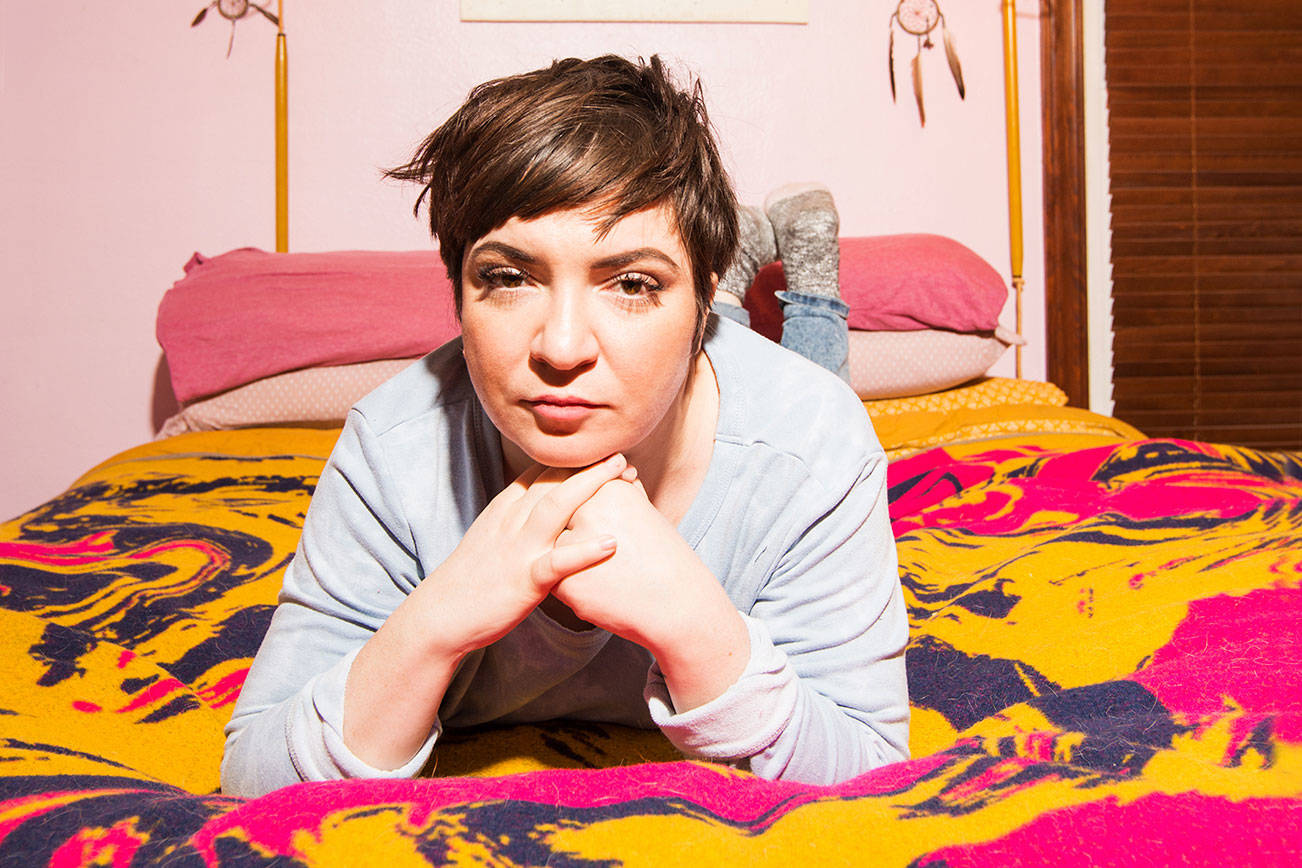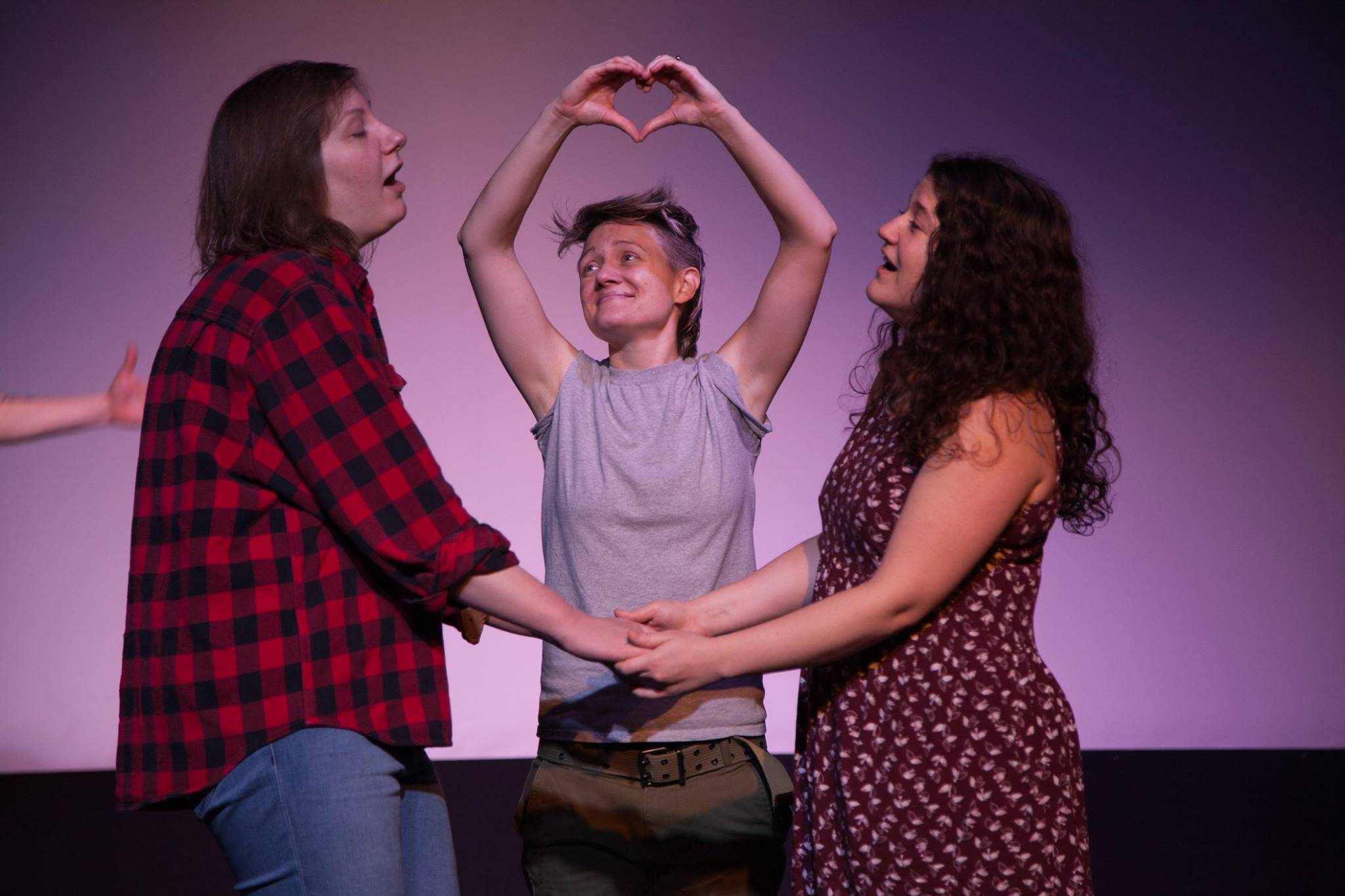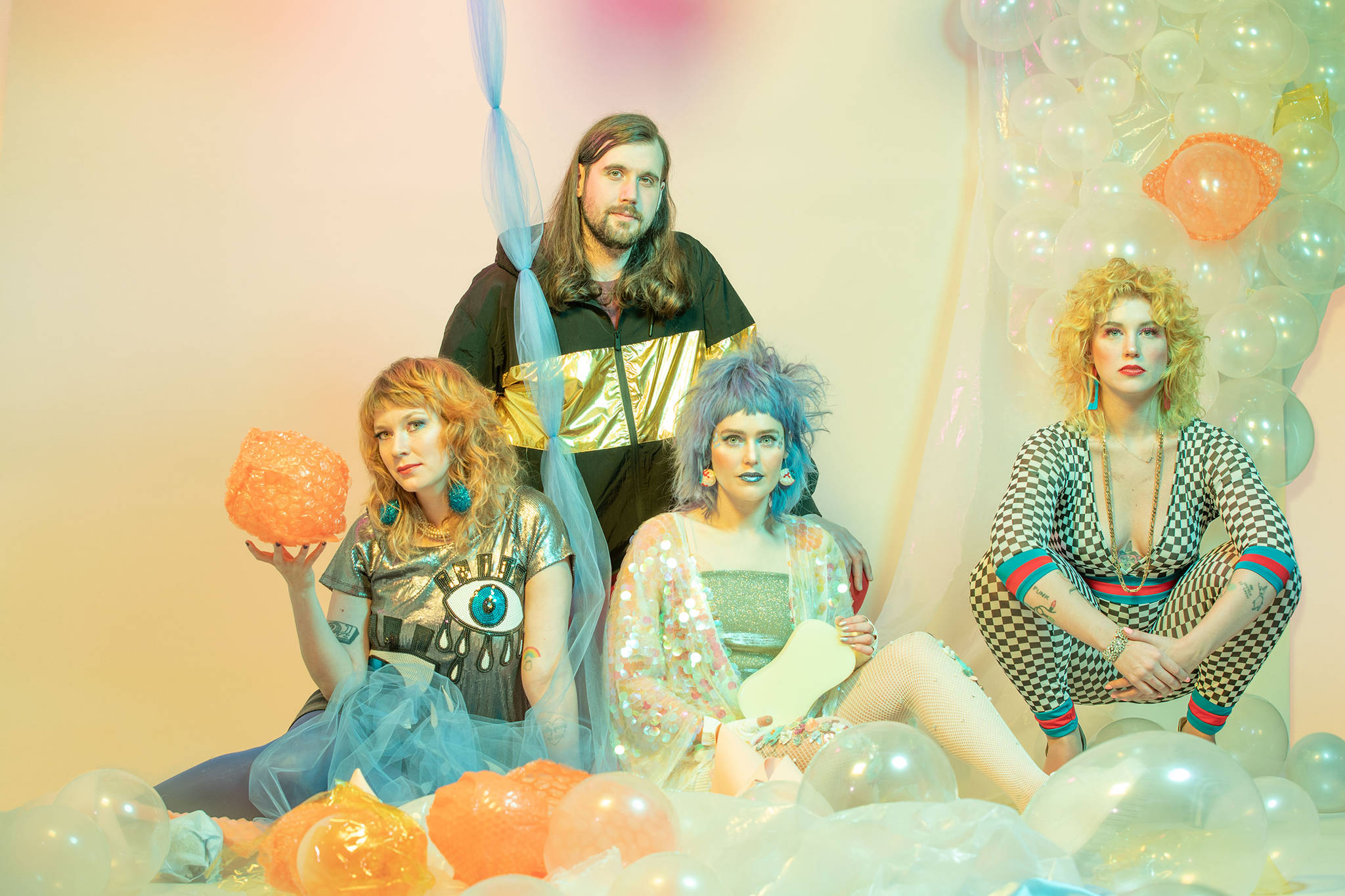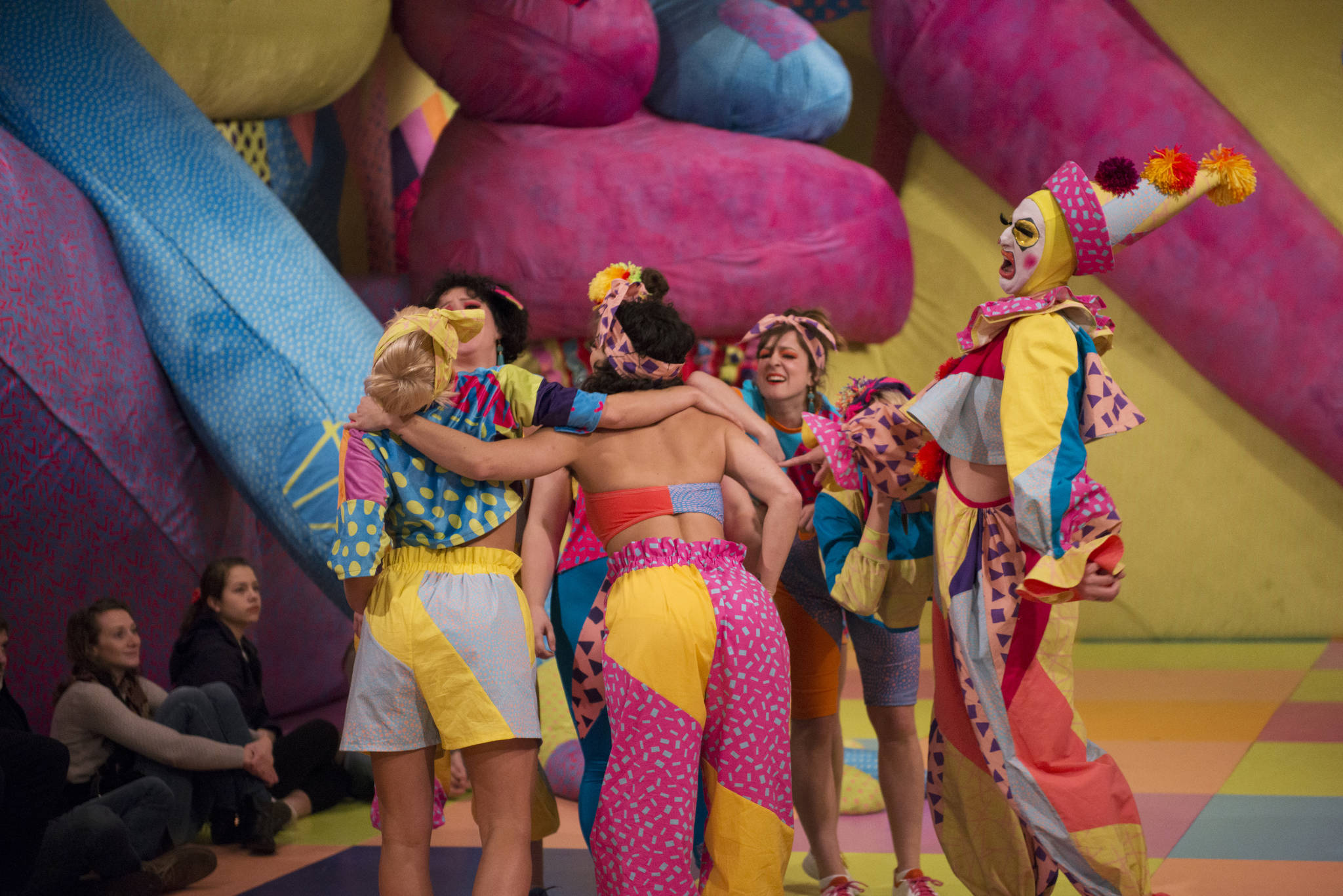Cumulus makes makes music for those indoor feelings. Those “staring at the ceiling and wondering what’s the point” feelings. Those “curled up in a fetal position in the corner of your apartment on a chill fall day and having a soft cry of self-doubt” feelings.
Seattleite singer/guitarist Alexandra Niedzialkowski’s band has always presented sweet indie-pop melodies to carry her downtrodden but hopeful lyrics. Cumulus released its first LP, I Never Meant It to Be Like This, in 2013 on Trans- Records (run by ex-Death Cab for Cutie guitarist/producer Chris Walla), but that original version of the band split up in 2014, and it has taken a while for Niedzialkowski to get through some turbulent times and give Cumulus a proper rebirth.
The new era of Cumulus sprouts to life today with the release of the project’s second LP, Comfort World. From the hooky opening pleas for song on “Sing to Me” to the combo of layered vocal harmonies and overdriven lead guitar flairs of “Coming Home” to the moaning pedal steel guitar of “Lighter,” the album finds the group’s new configuration playing around with fresh sonic presentations for Niedzialkowski’s bittersweet poetry. Cumulus marks the coming of Comfort World with an album-release show tonight at The Sunset with Temple Canyon and Kristin Allen-Zito.
Before the new record dropped, we chatted with Niedzialkowski about silver linings in Comfort World’s sadness, the one-two punch of getting fired and dumped, and bicycle percussion.
What is your favorite aspect about Comfort World?
I think the record as a whole was a really important process for me. I got to co-produce it along with Mike Davis; I got my hands on everything, every choice that was made on the album. Meeting Mike and making this record with him was a huge discovery process that made me feel like I had a purpose when I was kind of lost for a while. So it really helped me in my life. This album is very therapeutic for me. It’s always going to represent coming out of one of the most challenging times of my life.
The exploration we were allowed to take on the album was really huge. I brought in Colin Richey, Sean Lane, Erik Walters, Mike, and Sebastian Deramat, and nobody listened to demos before we went into the studio—we would just jam on a song for like three or four hours before we found a drum take that we liked, and from there [we would] piece-by-piece explore the different areas the song could go. There was never any moment where we were like, “Oh, this song needs to sound like this, and we’re going to make it sound like that.” The entire recording process was letting the songs unfold themselves until we were guided in the direction they were meant to go. So that was a really inspiring experience.
Songs that reflect that the most: “Lighter” was really interesting with the pedal steel, it just kind of took its own direction. That’s one of my favorite songs, I think it kind of stands alone on the album.
“Wake Me” had a really interesting process. It started out just as a GarageBand demo I had on my iPhone, just singing over an electronic drum beat that I did. I remember giving the demo to Mike and being like, “I’m not sure if this is a real song or not. I don’t know if this is a thing.” And he listened to it and was like, “Yeah, that’s a thing.” We took out the drums and started adding Sean Lane’s crazy experimental bike drum machine that he uses; he plays it like a violin almost at times. It’s got lots of different triggers and electronics that he’s fused together. It’s all handmade—he took apart a bicycle and then reassembled it so the metal parts that are a body of a bike are holding drums, and then instead of brake cables there are wires that he plays with his bow to get crazy sounds out of it. It’s insane. And we used a lot of his special bike effects on the album. Anytime there’s some weird texture that you could probably never explain, that’s his bike. [Laughs]
“Cannonball” was really cool because it’s actually a recording from my bedroom. I recorded it on my high rig microphone that cost me like $40. In the spirit of how we were making the album, I had tons of crazy ideas on how to approach that song. But the minute I brought it into the studio and had everybody who is playing on the album listen to it, they all didn’t want to touch it. They thought it was perfect just the way it was. So we ended up keeping the bedroom recording and putting it on the album [with just] Sean doing a little bit of atmospheric, warbly bike effects that kind of makes you feel like you’re in a sound tunnel over [the] top of it. But [essentially], that song was untouched from the minute I wrote and recorded it.
What brought you to feeling lost and searching for purpose?
Basically, in 2016, I’d just gotten fired from a job and was on unemployment. I had this corporate job, which is what I put a lot of my focus into between the records, and I think I had this weird idea of how my life was supposed to be. The first arrangement of the band broke up in 2014, and that felt like a real breakup. It kind of ruined me for a little bit. “Was I doing the right thing? Am I even supposed to be making music?” Just over-reflecting and blaming myself for a lot of things. So then I just decided to put a lot of my focus into working [that job] and being in a relationship. I didn’t really realize that all of the things that I was pursuing were things that weren’t really me either. I wasn’t really in a healthy relationship, I didn’t actually like my job, but I was still kinda going for it. But then I got dumped and I got fired. [Laughs] And I was like, “Whoa! What have I been chasing?”
And I’d never been fired before, so that was a really big, defeating feeling. You’re just kind of sitting around at a coffee shop every day applying to jobs, nobody’s writing you back, and I just felt really lost. I think that our culture is kinda like If you’re not making money, then you’re failing. I didn’t really feel like I had a purpose at the moment.
So then in early 2016, I kinda started playing music again. For I while I was playing with Dead Bars as my backing band, and they were really encouraging me to keep on writing and playing music. So I got really excited about playing out again, I started playing shows. And then after I got fired, I was able to start thinking about music more because I actually had time on my hands. So I had songs written and was like, “OK, Chris [Walla], I’m ready to make this second album.” And he was like, “OK, I’ve been waiting for you to say that.”
So then I went into the studio [Chris Walla’s Hall of Justice] with Mike, and we were in the studio for seven months. Not like every day seven months, but basically anytime the studio wasn’t being paid for by another artist, that’s when we’d be in there. So we paid for studio time, but then we also kind of got some of the off hours.
A lot of the lyrics on Comfort World touch on those feelings of self-doubt and self-blaming. Is it tough at all to have to repeat those lines again and again without somehow internalizing them?
It’s been a really different experience being a 30-year-old musician versus being pre-25 writing and putting out that first album. I feel like all of the mistakes that I made ended up being the exact mistakes that I needed to make to get me to the place that I am now. And I’m really, really excited about where I am now. So mostly I like the idea of telling young people about these feelings, and that you’ll get through them. I think there’s always a silver lining to the way I write songs. “Born in the Dark” was something I wrote when really in the depths of being sad about my band breaking up: “I cry when I watch the TV/All my friends disown me.” Kind of just feel like Oh my God, what did I do? But then also me telling myself I belong here anyway. I made some mistakes, but I’ve been in a dark place before and I’ve gotten through it.
To me, the songwriting process is definitely me reminding myself that I belong here and that it’s going to be OK. I guess I’m writing myself out of my sad feeling. And people relate to that, people want to hear other people talking about those places. Because we should be talking about them. I find power in vulnerability. That, to me, is the most important part about what I do and how I connect to people in the audience or people who listen to the record. I want them to know that it’s OK if they don’t know what they’re doing right now, it’s OK if they’re struggling. That I believe in them. That’s what music is for.
Is that what you want people to take away from Comfort World?
Definitely. I just people to feel less alone when they listen to it.
Is there anything else you’d like to add?
I’m just really excited to be playing music in Seattle. There are so many amazing artists out there, especially how many amazing women are out there making music right now in the general rock category. I still remember when I put out my album in 2013, and no journalist had any reference for what we were doing besides Best Coast. “Oh, you guys sound like Best Coast!” [Laughs] And that was really weird. Because I had references for what we were doing that was more than Best Coast. Now it’s like, holy crap. I’m excited about the diversity of voices that are out there challenging what rock music and pop music is.
Now that I’m out playing again, and these songs are out, and I’m writing, I feel more sure of what I’m doing than I was in my early- to mid-20s. I think I kind of took music for granted a little bit when I was younger, and now I realize it’s something that needs priority, time, and room to grow. I didn’t know if I was doing the right thing. But now it’s like, “Yeah, I’m supposed to be making music. This is the thing.” It’s not that I ever doubted it, but I think I just wasn’t ready to go for it all the way. But now I am.
Cumulus: Comfort World Release Show
Friday, September 28 | The Sunset | $10 | sunsettavern.com








